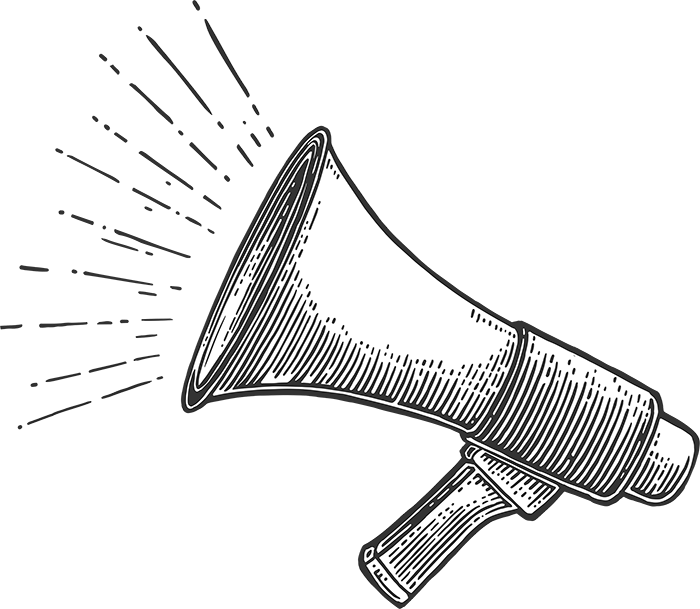Five Questions with Jason Ciment
For the final day of interviews with SES New York speakers, I had a chance to talk to Jason Ciment, co-founder of LaDezign.com. Jason will be presenting during a session on the search and the fear economy track, Survival of the Fittest 2.0. Can his survival story put our fears at ease? Let’s find out.
1. In this session, Internet marketing veterans are going to share their experience of weathering the dot-com bust. Can you give us a brief insight into the situation you faced in 2000/2001?
A. My funding from our incubator disappeared. They were only halfway into their funding and even when they did put money in, they were always behind or reducing the amounts they had put in.
B. I was staffed for an Internet marketing push towards driving consumer traffic but now I had no money to pursue this and we were stuck with 3 revenue channel approaches of which only one had produced any significant revenues.
C. We also faced heavy spending from a competitor like www.enews.com (now out of business) which by its demise had spent $100MM dollars apparently. So we realized back then that we could not match their marketing budgets.
D. It was also the dawn of affiliate marketing from an adoption sense which meant that we had a possibility here to make some inroads.
E. Because of the perceived lifetime value of subscriptions, our competitors were also giving away almost all their revenues just to get customers. This is why enews for ex. went bust because the model could not sustain itself.
F. So to sum it up the situation we faced was how to sustain the company with SUSTAINABLE, PREDICTABLE, PROFITABLE CASH FLOW.
2. What do you look back on as the best thing you did that allowed you to stay on your feet in the Internet sector? Is this something you think worked only for your situation or can it be applied by others who have been hit by a layoff in this recession?
A. First thing we did is to adopt a FOCUSED attitude towards dominating a NICHE. So since we were located in LA, we started aggressively marketing on an outbound basis to local companies within one niche. And we started winning accounts with talent agencies like ICM and CAA (which Magmall still services today). We also picked up related companies like public relation firms (like PainePR) and advertising firms.
B. I hired people with experience rather than trying to train from scratch and directed this effort to targeted customers/prospects.
C. I reduced my fixed overhead dramatically and pared down staff to match cash flow sustainability.
D. I also increased spending on the web site technology in order to improve our search engine traffic capability and our customer service transactionality. Our catalog online was easy to access and customers could at that time really quite easily keep track of subscriptions from year to year. We focused on one message. Aggregating subscriptions purchase under one roof. We weren’t selling a commodity anymore. We were selling an “Aggregation (ie. Consolidation) Service”. This transformed us from a below the radar company selling a commodity like magazines, to an HR solution that would enable companies to reduce direct and indirect costs related to subscription purchases. Directly, we could offer bulk discounts. Indirectly we could reduce expenses by providing one access gateway for all orders and one bill rather than paying multiple vendors.
Editor’s note: The rest of the response to question number two was added after the initial publication as Jason wanted to add a few more thoughts on this point.
This strategy of focusing on technology had two unintended consequences. The first is that I ended up partnering with 3 Israeli/Russian scientists to form a new software company (www.Adrecom.net) that had a strategy for converting a Rapid Deployment Interface Architecture they had developed independently into a hybrid ecommerce platform combined with a full-blown content management system (CMS). They wanted more than giving web stores a speed to market advantage. They wanted a platform that would focus some serious attention on creating an interactive customer portal as part of the web store interface. What this meant is that registered users would have a fairly comprehensive self-service platform where they could access things like printing receipts, making address changes online, renewing subscriptions to multiple orders from one screen and other things which made them sort-of feel in control of their online experience). More importantly, the customer portal was interactive (like a blog) and it gave customers the ability to contribute to the growth of a site’s content (the holy grail in search engine optimization) by leaving reviews, editorials, ratings and comments. Suffice it to say that this not only helped us improve overall satisfaction but it blew our search engine ratings through the roof because we embedded all the optimization techniques right into the platform at the same time and because of the rapid deployment stuff, we were able to introduce things like private labeling really quickly into the marketplace.
E. The last thing we did was actually to work with Bryan and Jeff at Futurenow back when they were just getting their company off the ground. I think we were one of their first customers. When we engaged with them our conversion rate was at one point hovering around 1.2% and after working with them to measure our traffic and start profiling our visitors with just basic demographic profiling, we raised conversion rates considerably to almost 5%. That is probably one of the reasons we were able to make the transition to focus on the B2B arena as well because we started to realize that the looky-loos existed more among consumer (B2C) buyers more than business buyers and thus even though traffic went down, our conversion rates went up as we got more targeted traffic.
3. How do you think this economic environment compares to the situation in 2000? Is it better or worse this time around for those in the Internet marketing field?
A. It’s better and worse.
B. It’s better because we are more sophisticated now and through the hard times have come to respect the value of a profitable sale.
C. It’s worse because the economy is a mess and people are scared to spend a penny. We’ve heard it described this way to get a sense of what the economy really looks like. In the first quarter after the “meltdown” people at companies will still have cash in their budgets so they will spend whatever they can before “corporate” pulls away their budgets. In the 2nd quarter there will be some money left as “corporate” was still hopeful, plus revenues being reported in Q2 will still reflect the increased spending in Q1. By Q3, the budgets are gone and Q2 reporting will reflect much lower spending. So the question is now that we are at the end of month 6 since the meltdown, what will Q3 look like.
4. What’s your basic strategy for making it through the tough economic environment we’re currently facing? Does your experience match up with the theory that tough economic times are the times to be aggressive with growing your business?
1. Adopt a niche focus again. Target users that are hungry and give them a better meal or a cheaper meal. Don’t try to sell something that someone isn’t already looking for UNLESS it is something they never considered before (and that would be a paradigm shift type of product or service).
2. In our search engine optimization and web software business, we are targeting manufacturers for 2 reasons. First, it’s an underserved market since it is so fragmented. Second, it is likely to have less red tape and we can reach the decision maker who can sign the check. Now that we have achieved top rankings for a variety of companies that fall under ONE category, it is easier to approach other companies within the niche and say “we are the best FOR WHAT YOU DO”.
5. What recommendations would you give to those who have lost an in-house or agency position? If you were in that position, would you start looking for a position with a company or try independent consulting? What do you see as the pros and cons of each in an economically unstable environment?
1. DEVELOP YOUR Rolodex. Personal connections are vital and therefore LinkedIn or Facebook are great to maintain connections but you need to establish a PRESENCE online and that means you need a web site for your professional self where you can WOW people. This is one of our new initiatives to “train” people on how to use the Web to create value for YOU.
2. Companies still need to be educated on the value of SEO or PPC. We know from our clients how busy CEOs are and going down the corporate food chain, as we progress as a society, we are reverting to the days of old where your name reflected your role in society. Today it is about specialization again and therefore, people are being pushed into becoming “experts” at a particular process or field of interest. Therefore, if you have lost your position, then the first recommendation is to approach competitors of your old business and put yourself out there as “experienced” in that marketplace or arena. It gives you more value to “already speak the lingo.”
Some wise words to think about as we position ourselves in these uncertain times. Jason also added a postscript encouraging those interested in developing their niche to check out Search Engine Roundtable’s article Are SEOs That Specialize in Industry Verticals Better? Thanks for sharing your story here on the blog, Jason!
Don’t forget; there will be lots more presentations posted here on the blog while I’m liveblogging Search Engine Strategies next week. I’m also looking forward to a live episode of SEM Synergy on Wednesday, so don’t touch that dial!
26,000+ professionals, marketers and SEOs read the Bruce Clay Blog
Subscribe now for free to get:
- Expert SEO insights from the "Father of SEO."
- Proven SEO strategies to optimize website performance.
- SEO advice to earn more website traffic, higher search ranking and increased revenue.

One Reply to “Five Questions with Jason Ciment”
LEAVE A REPLY









